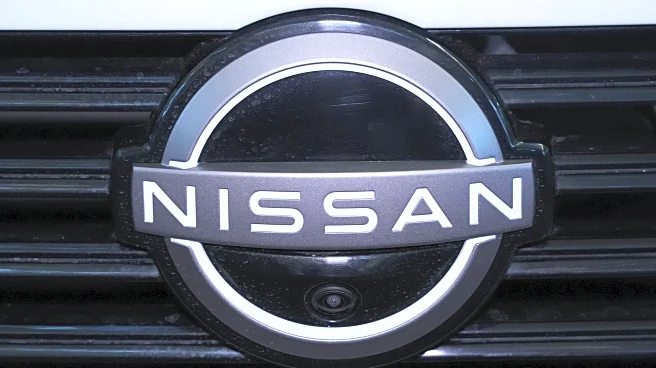By Gregor Stuart Hunter and Rae Wee
SINGAPORE (Reuters) -U.S. President Donald Trump's Friday tariff deadline brought little reprieve for markets, with tech stocks in South Korea and Taiwan hit hard as
investors fretted over the cost of disrupting global supply chains and the outcome of talks with China.
For traders inured to Trump's repeated threats, his follow-through on blanket tariffs for dozens of nations may be a wake-up call, as the deadline to strike trade deals with the United States expired and new levies arrived in Asia right on cue.
While the new export duties are below the "Liberation Day" tariffs unveiled on April 2, they fuel uncertainty, as several countries are still in talks with the United States.
Investors are also still on edge over whether the United States and China will be able to clinch a deal to avert a tariff of 55% tariff before their trade truce ends on August 12. "There are no real winners here," said Charu Chanana, chief investment strategist at Saxo in Singapore.
"The U.S. administration can claim a political win, having followed through on its threats, but economically the impact will be felt in higher prices, disrupted supply chains, and slower growth," she said.
"Even countries that got away with 10% duties aren’t celebrating."
The move is a reminder that a U.S. president who has consistently advocated protectionist policies for decades now has the power to force higher costs on companies across complex global supply chains that took just as long to build.
That is unless foreign governments are prepared to accept deals that prioritise American interests.
Stocks have rallied substantially from lows hit after the tariffs were first threatened, as Trump offered a temporary reprieve and countries such as Britain, Japan, and South Korea reached trade deals.
The MSCI All Country World Index is up 28.4% from a bottom hit on April 7. But the gauge has now fallen for the past four consecutive sessions.
The average tariff rate is going from about 2.5% to 15.3%, said Prashant Bhayani, chief investment officer for Asia at BNP Paribas Wealth Management.
"That's a step change," he said. "But if everyone's getting tariffed, it's more about that relative (level), because that affects how much you get, and perhaps relative to your competitors."
Underscoring investors' worry were comments by U.S. Treasury Secretary Scott Bessent to CNBC on Thursday that China's trade deal was "not 100% done," adding that he would talk to President Trump later the same day. "Until the China deal comes out, you don't really know which country has a comparative advantage," said Gary Tan, a portfolio manager at Allspring Global Investments in Singapore.
"There's limited ways to judge whether a tariff rate for these emerging Asia developing market economies is a good rate or a bad rate."
TECH SHOCK
Stocks in Asia-Pacific's biggest tech hardware makers suffered the brunt of the selling, with South Korea's Kospi index dropping as much as 3.7% and Taiwan's benchmark index down as much as 1.6% before recovering.
Trump hit Taiwan with a tariff of 20% on Friday, higher than the 15% the United States agreed with Japan and South Korea, though the government said it would continue to negotiate for a lower duty. Taiwan and South Korea are critical links in the supply chain of advanced logic chips and memory chips respectively.
Taiwan Semiconductor Manufacturing Company shed 1.7%, as shares in its supplier Tokyo Electron plunged 18% after cutting its profit forecasts by a fifth.
SK Hynix fell 5.5% amid a broader rout in South Korean stocks as the government said it would raise taxes on corporate income and stock investments. The declines also rattled currency markets, with the South Korean won weakening past 1,400 per dollar for the first time since May 19 and the Taiwan dollar weakening past 30 against the greenback for the first time since June 4.
The sector shrugged off better-than-expected earnings from Apple and focused instead on a warning from CEO Tim Cook that U.S. tariffs would add $1.1 billion in costs over the period.
Weaker-than-expected results from Amazon.com's cloud-computing unit added to the gloom.
But even after the tariff deadline, some market participants said they expected agreements to remain in flux. "I expect that the rates will continue to be changed between now and maybe even up until next year," said Jeff Ng, head of Asia macro strategy at SMBC in Singapore. "Trump will continue to make some changes to the tariffs."
(Reporting by Gregor Stuart Hunter and Rae Wee; Additional reporting by Ankur BanerjeeEditing by Vidya Ranganathan and Clarence Fernandez)












